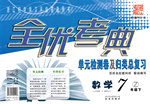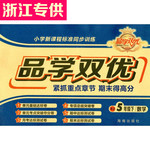题目内容
---Why didn’t you write?
--- My ink has _______.
A.used up B.run out of C.given away D.given out
D

 全优考典单元检测卷及归类总复习系列答案
全优考典单元检测卷及归类总复习系列答案 品学双优卷系列答案
品学双优卷系列答案 小学期末冲刺100分系列答案
小学期末冲刺100分系列答案It was Thanksgiving morning and in the crowded kitchen of my small home I was busy preparing the traditional Thanksgiving turkey when the doorbell rang. I opened the front door and saw two small children in rags huddling together. “Any old papers, lady?” asked one of them.
I was busy. I wanted to say “no” until I looked down at their feet. They were wearing thin little sandals, wet with heavy snow.
“Come in and I’ll make you a cup of hot cocoa.”
They walked over and sat down at the table. Their wet sandals left marks upon the floor. I served them cocoa and bread with jam to fight against the cold outside. Then I went back to the kitchen and started again on my household budget.
The silence in the front room struck me. I looked in. The girl held the empty cup in her hands, looking at it. The boy asked in a flat voice, “Lady, are you rich?”
I looked at my shabby slipcovers. The girl put her cup back in its saucer carefully and said, “Your cups match your saucers.” Her voice was hungry with a need that no amount of food could supply. They left after that, holding their bundles of papers against the wind. They hadn’t said “Thank you.” They didn’t need to. They had reminded me that I had so much for which to be grateful. Plain blue china cups and saucers were only worth five pence. But they matched.
I tasted the potatoes and stirred the meat soup. Potatoes and brown meat soup, a roof over our heads, my man with a good steady job—these matched, too.
I moved the chairs back from the fire and cleaned the living room. The muddy prints of small sandals were still wet upon my floor. Let them be for a while, I thought, just in case I should begin to forget how rich I am.
【小题1】Two children came to the writer’s front door because _________________.
| A.it was Thanksgiving Day | B.they were beggars |
| C.they wanted old papers | D.they wanted a cup of cocoa |
| A.She showed great pity on them |
| B.She had old papers to sell |
| C.She wanted to invite them to her Thanksgiving feast |
| D.She wanted them to see how rich she was |
| A.she saw that the lady’s room was comfortable |
| B.she saw the cups matched the saucers |
| C.the writer’s slipcovers were very new |
| D.the writer was preparing a big meal while she was too hungry. |
| A.how much money you have had |
| B.how you feel about your life |
| C.how you have helped others |
| D.what job your husband is doing |
| A.show her husband that someone had come |
| B.remind her that she had helped two children |
| C.remind her that she was very rich in the neighborhood |
| D.remind her how life should be |
The baby is just one day old and has not yet left hospital. She is quiet but alert (警觉). Twenty centimeters from her face researchers have placed a white card with two black spots on it. She stares at it carefully. A researcher removes the card and replaces it by another, this time with the spots differently spaced. As the cards change from one to the other, her gaze(凝视) starts to lose its focus - until a third, with three black spots, is presented. Her gaze returns; she looks at it for twice as long as she did at the previous card. Can she tell that the number two is different from three, just 24 hours after coming into the world?
Or do newborns simply prefer more to fewer? The same experiment, but with three spots shown before two, shows the same return of interest when the number of spots changes. Perhaps it is just the newness? When slightly older babies were shown cards with pictures of objects(a comb, a key, an orange and so on), changing the number of objects had an effect separate from changing the objects themselves. Could it be the pattern that two things make, as opposed to three? No again. Babies paid more attention to squares moving randomly on a screen when their number changed from two to three, or three to two. The effect even crosses between senses. Babies who were repeatedly shown two spots became more excited when they then heard three drumbeats than when they heard just two; likewise(同样地) when the researchers started with drumbeats and moved to spots.
【小题1】The experiment described in Paragraph 1 is related to the baby’s ______.
| A.sense of hearing. |
| B.sense of sight. |
| C.sense of touch. |
| D.sense of smell. |
| A.the size of cards. |
| B.the colour of pictures. |
| C.the shape of patterns. |
| D.the number of objects. |
| A.To reduce the difficulty of the experiment. |
| B.To see how babies recognize sounds. |
| C.To carry their experiment further. |
| D.To keep the babies’ interest. |
| A.Science fiction. |
| B.Children’s literature. |
| C.An advertisement. |
| D.A science report. |
I was born and raised in Hong Kong.For the past six years, I've been living in the United States.I work as a salesgirl in a large department store.Right now I'm going through a difficult period of my life which is hard for me to talk about.
A few months ago, I went to Hong Kong for a visit.It was the first time I'd gone back there since coming to the United States.I was eager to see my parents, my brothers, my sisters and my friends.
my sisters and my friends.
I really got a shock when I arrived.Hong Kong was not the same city as I left six years ago.Things had changed so much that I didn't recognize parts of it.My primary school was gone.The houses on the street where I used to live had been torn down and replaced by office buildings.
The shock from the physical changes in the city, however, was nothing compares to the confusion and hurt I soon began to feel in my parents' home.My family greeted warmly when I arrived.While my mother was busy preparing a special dinner in my honor, the rest of the family eagerly asked me questions about my life in the United States.I felt happy that day and for a couple of days after, but then I began to feel that something was wrong.I noticed that my family, especially my mother, would sometimes glance at me in a strange way when I was speaking.They gradually became less warm and friendly towards me, I became uncomfortable and confused as to why they were behaving that day.
I decided to talk to my mother.She asked me, "Have you forgotten your Chinese way?" I asked her what she meant.She asked, "You've forgotten the place of women in a Chinese home.You talk when you should remain silent.You speak on matters that of concern only to men.You speak openly of your inner feelings and desires.That's not the way of a Chinese woman.We keep our thoughts and feelings to ourselves.
【小题1】I was born and raised in Hong Kong.Here raise means______.
| A.bring up | B.stay | C.become higher | D.live |
| A.The physical changes in Hong Kong. |
| B.Her primary school didn't exist any longer. |
| C.She couldn't recognize parts of Hong Kong. |
| D.The confusion and hurt she experienced in her parents' home. |
| A.She had forgotten her role as a woman. |
| B.She didn't follow the Chinese custom about how a woman should behave at home. |
| C.She spoke of her inner feelings and desires directly. |
| D.She talked about matters that were not concerned with women. |
| A.My Trip in Hong Kong | B.The Changes in Hong Kong |
| C.Caught Between Two Cultures | D.The Chinese Way |
It's certain:for twins,life really does imitate art.My twin brother,Kirk,and I grew up being constantly mistaken for each (处理这个问题) other.Classmates,friends,teachers,even relatives couldn't tell us apart. As a result,we were often unfairly punished or rewarded.
Eventually,we learned how to use the Mistaken Identity Syndrome (MIS) to our advantage.For example,we would play tricks on our friends and classmates,pretending to be the other twin.Nor were teachers immune(不受某事物影响) to our tricks.On at least one occasion,when Kirk was sick,I covered for (替代) him by taking his tests.We also tried our little game out on Mom,but she always knew who was who.Once we grew up,we even covered for each other at work.We didn't mean any harm;we simply started this as an experiment to see whether our bosses and co-workers could tell the difference.
As a bank manager, I meet with dozens of clients(顾客) on a daily basis, while my brother manages a staffing service for local employers. As a result, Kirk is constantly approached by people who want to discuss their various money accounts, while I'm frequently thanked on the street as a department store customer service representative.
However, the MIS took a truly embarrassing turn when Kirk and I found ourselves unable to tell each other apart. Once, my brother and I were traveling in a car with several friends. My brother's hair must always be in place. Kirk was driving when he noticed in the rearview mirror (后视镜) that his hair was a bit messy.
He lifted his right hand to brush his hair back into place and was disturbed when his hand didn't appear in the mirror. Several times he repeated this action. Finally, he started laughing.
【小题1】According to the first paragraph, we know that .
| A.few people can tell the author from Kirk |
| B.the author was punished more than Kirk |
| C.the author was always rewarded though he was wrong |
| D.being twins is really a good thing for both twins |
| A.a kind of disease difficult to cure |
| B.the situation of mistaking identities |
| C.the tricks that children like to play |
| D.the way to separate two similar things |
| A.he is often successful |
| B.he means to harm his boss |
| C.his brother is seriously ill |
| D.he often behaves strangely |
| A.He felt embarrassed about his hair. |
| B.His brother's hair was really messy. |
| C.His brother was doing the same thing. |
| D.He became the victim of the MIS. |